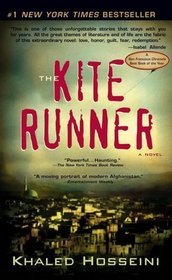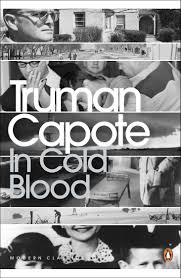Finding the Line: What is “Good?
Text Set for The Kite Runner by Khaled Hosseini
created by Alexandria Bottelsen
What makes someone a good person? When are you beyond redemption?
For many young adults, the world seems black and white. In many forms of literature and pop culture, there is a dichotomy between good and bad, heroes and villains. That being said, things such as morality and the “right” thing to do are rarely clear-cut. Not only do these determinations depend on cultural and societal norms, they are also based on individual values. Through The Kite Runner, students will have the opportunity to explore what it truly means to be good, and when—and ultimately if—people are beyond redemption and forgiveness.
The Kite Runner by Khaled Hosseini deals with these issues of morality in a modern, engaging way and thus serves as the anchor text for this unit. That being said, the novel does take place in Afghanistan, where the culture and values are far different than those of high school students in the United States. While it is important for students to see that these issues are universal, I wanted to choose other texts—such as Harry Potter and Scandal—that they could easily relate to and grabble with. Similarly, many of the Internet texts are very modern. I want our discussion in class to transfer to other classes as well as their daily life, so including local police blotters, news articles about Snowden, and discussing the morality of current wars will expose them to wide range of contexts in which this argument exists.
Anchor Text (although other texts may be used!):
The Kite Runner by Khaled Hosseini

Book Excerpts
In Cold Blood by Truman Capote

Videos
Episode of Scandal (e.g. Season 4, Episode 19) and Abby and Harrison Talk About Morality
Clips from Harry Potter: Snape vs. Dumbledore
Les Miserables (2012): Clip where the bishop forgives Valjan
Criminal Minds Episodes (various)
Websites
The Scales of Good and Evil
Thought Experiment I
Thought Experiment II or Thought Experiment III
Who would you forgive?: List of Historically Famous “Bad Guys” (Instead of giving students the website rankings, ask the famous “bad guys” and debate/discuss this process. Can we rank evilness?)
Charts
Kohlberg’s Stages of Moral Development
Short Stories
“Young Goodman Brown” by Nathaniel Hawthorne
“Lather and Nothing Else” by Hernando Tellez
“The Lottery” by Shirley Jackson
Articles
“Does Reading Good Literature Make You Moral?”: Boston Review
“Is War Ever Morally Justified?”: The Week
Newspaper Scavenger Hunt for Good and Evil: Police Blotter
Bill Cosby vs. Michael Jackson: How Are They Remembered?
Edward Snowden
Essay
“The Prince” Machiavelli
Guiding Questions
- How does the culture we live in help/hurt our definition of morality? How does the line between good and evil differ between cultures?
- Does someone’s position in society (e.g. a role model, celebrity, or public servant) change where the line of morality is for them?
- Is anyone entirely “good” or “bad,” or can people move freely between categories?
- How does someone’s fall from morality affect our memory of them as a person?
- Is there a point at which we can no longer forgive someone? Who defines that point?
- Are good and bad situational, or are they concrete across all contexts?
- Do the “ends justify the means”? In other words, is it ok to act “badly” if the result is “good”?
Writing Prompts
- Think of a time when someone betrayed you. What did they do and why was that so bad for you? Would someone have taken equal offense to it? Were you able to forgive them? Why or why not?
- What is one thing you think is beyond forgiveness? Why did you choose this? Can you think of any situations where you may forgive a person for that action?
- List your top three values as an individual. Where do these values come from? How do they affect your view of “good” and “bad”?
- Trace Amir’s morality throughout the novel, then decide, is Amir ultimately a moral person? Do you forgive him? Write a short paragraph for each side of the argument, then highlight which one you personally agree with the most.
A special thanks to Alex for this critical, thoughtful text set! We hope this will prove useful for many anchor texts! What do you think?


